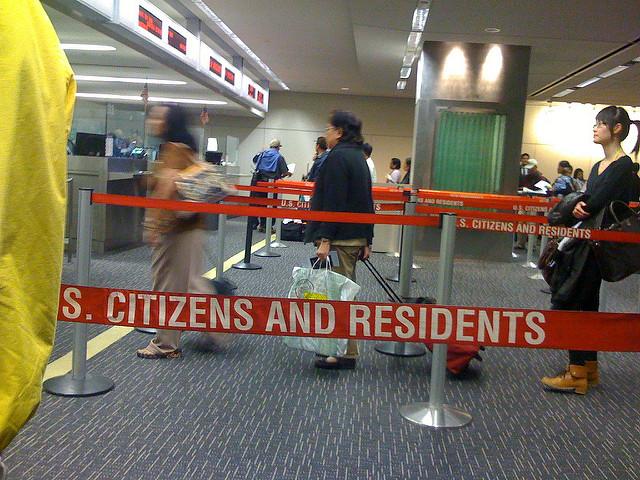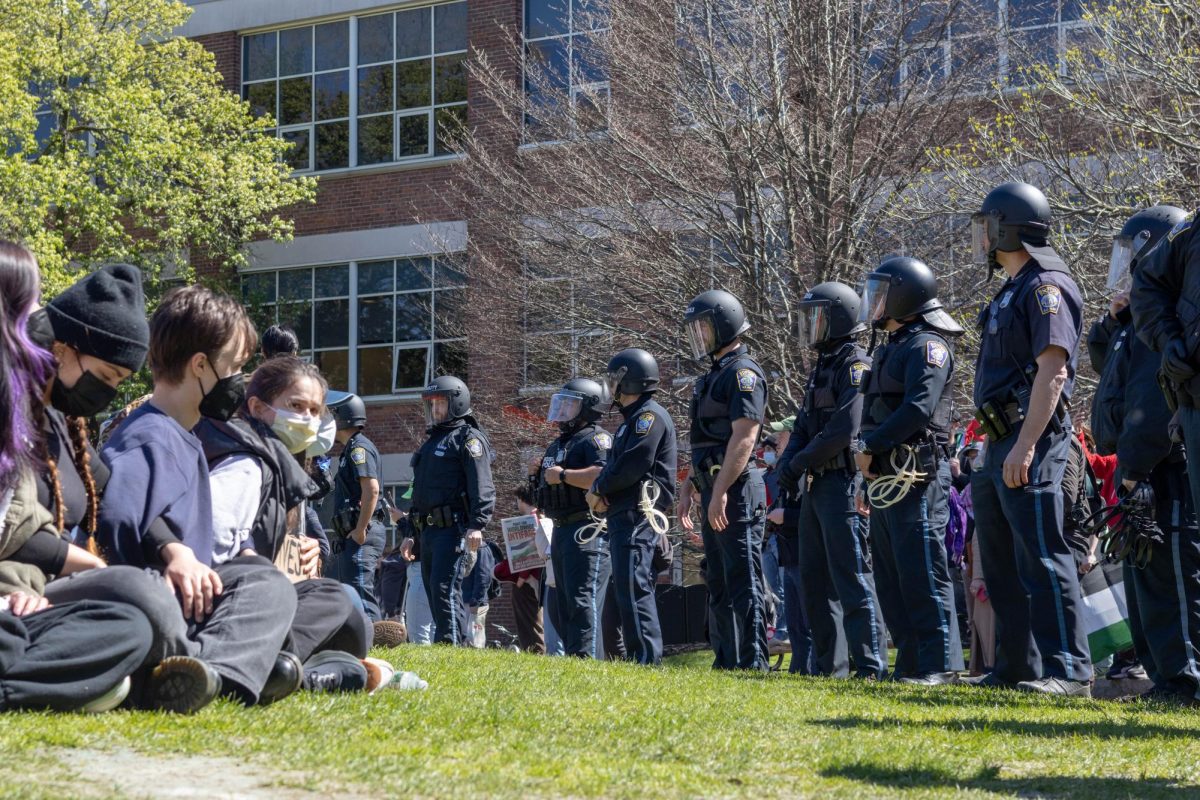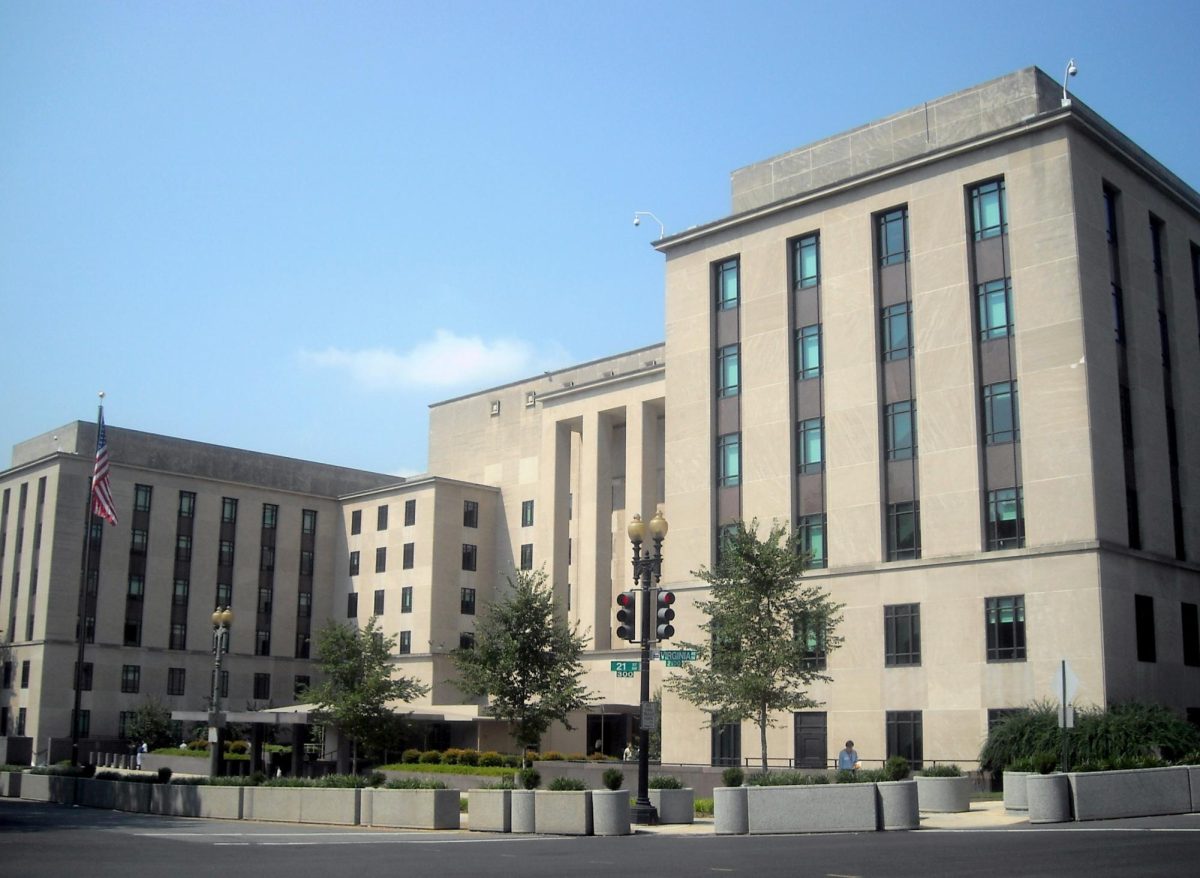“DEPORTATIONS TO BEGIN,” The Boston Globe headline read. “President Trump calls for tripling of ICE force; riots continue.”
The headline is fake—not an example of fake news intended to manipulate uninformed readers, but rather the top of a satirical front page published in the Globe opinions section last April Fool’s Day. President Donald J. Trump is not really calling for a tripling of Immigration and Customs Enforcement (ICE) agents, nor are there riots erupting in the streets over deportations. However, in some alarming real news provided by the Washington Post earlier this week, the Department of Homeland Security is planning to expand the number of enforcement agents and the pool of undocumented immigrants who are prioritized for removal, as well as speed up deportation hearings and enlist local law enforcement to help make arrests.
Memos from Homeland Security Secretary John F. Kelly instructed agency chiefs to begin hiring 10,000 additional ICE agents and 5,000 more for the Border Patrol, which had been included in Trump’s executive actions, according to The Post. Kelly also wrote that ICE will try to expand partnerships with municipal law enforcement agencies that train local police to enforce federal immigration policies.
Last April, The News published an editorial that juxtaposed the satirical Globe headline with the immigration policies of former President Barack Obama. We wrote:
The category of “criminal deportations” includes people pulled over for DUIs, drug use, disturbing the peace, public nuisance violations and all manner of low-level misdemeanors that pose no threat to this country or its citizens. Particularly insidious are federal-local partnerships like Secure Communities, a program which tracks the immigration status of people booked in county jails across the country and cages anyone without citizenship in ICE detention centers. Under the program, ICE officials have escalated raids targeting scores of non-citizen adults who are detained for any reason, many of whom are longtime, employed residents with families arrested for minor offenses. In the past, the program swept up domestic violence victims, people with outstanding speeding tickets and at least one U.S. citizen, according to a 2015 Frontline report.
According to 2011 study, more than 5,000 children in 22 states were in foster care as a direct result of their parents’ deportation; the same study predicted more than 15,000 children would be in the same situation by 2016.
After deportations reached a record high of 434,000 in 2013, pressure from immigration advocates prompted the Obama administration to implement new guidelines that focused enforcement on “felons, not families,” according to the Post. The number of people deported in 2015 was just over 333,000, the lowest number since 2007, according to federal data. Statistics for 2016 are not yet publicly available.
Now, directives from the Trump administration are putting that welcome decrease into question. ICE raids in multiple cities that started over the weekend have already sparked fears from immigration advocates and Democrats, according to CNN. USA TODAY reports that of 678 people rounded up in 12 states during raids last week, 74 percent had been convicted of a crime. That’s down from 90 percent of detained people with criminal records in 2016 under Obama, according to a USA TODAY analysis of more than a dozen federal raids.
Mass deportations are not a useful way to combat immigration issues. Neither are the executive orders, collectively referred to as the Muslim Ban, that were rolled out last month prohibiting refugees and immigrants from seven Muslim-majority countries. And a wall at the Mexican-American border is certainly not effective. Instead, the U.S. should be reviewing standing immigration policies: Clarifying visas, making the naturalization process more streamlined and focusing deportations more narrowly. Striking baseless fear into Americans and tearing apart families over low-level crimes are not good domestic or foreign policies.
Photo courtesy Jeff Warren, Creative Commons















